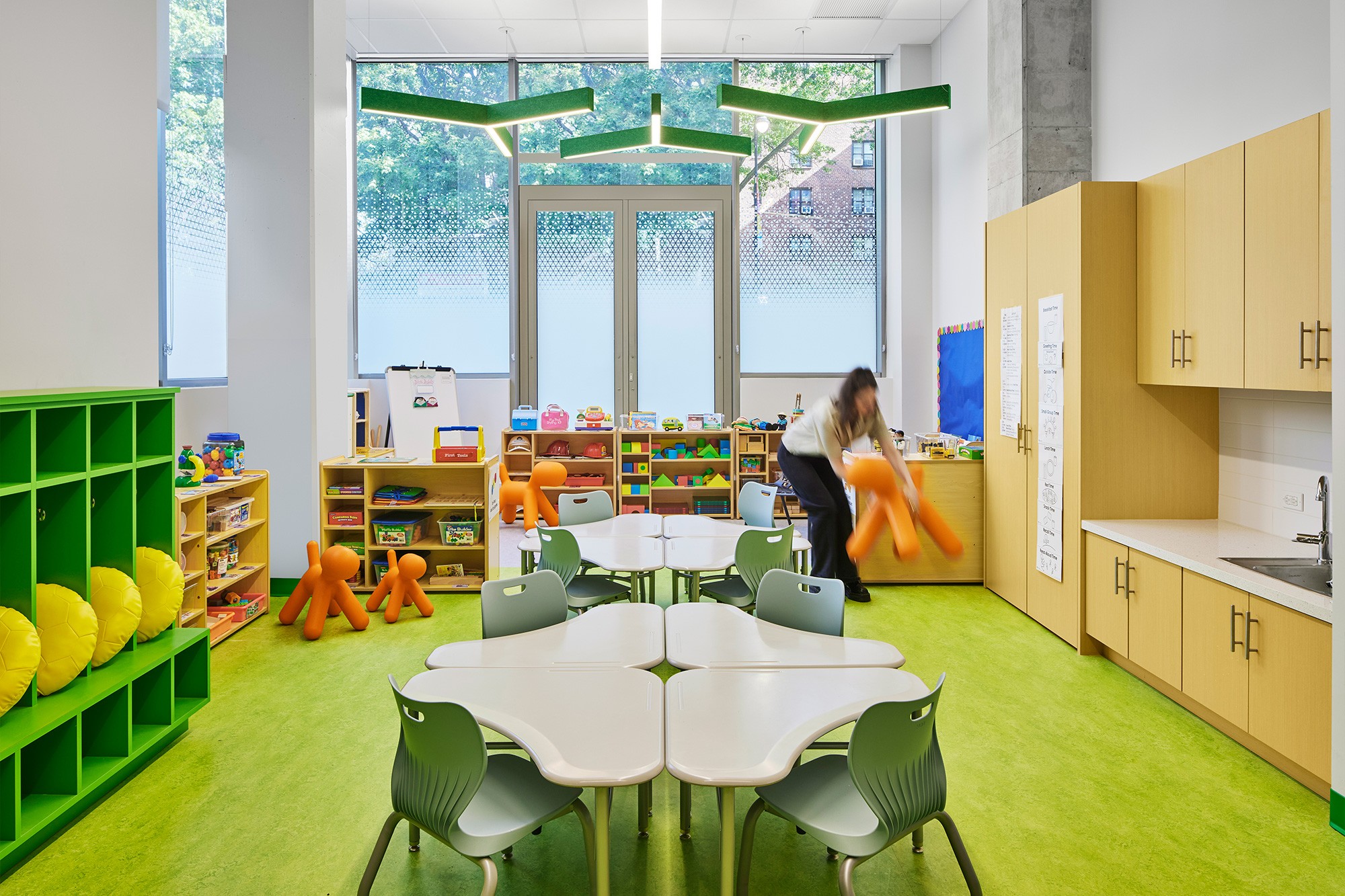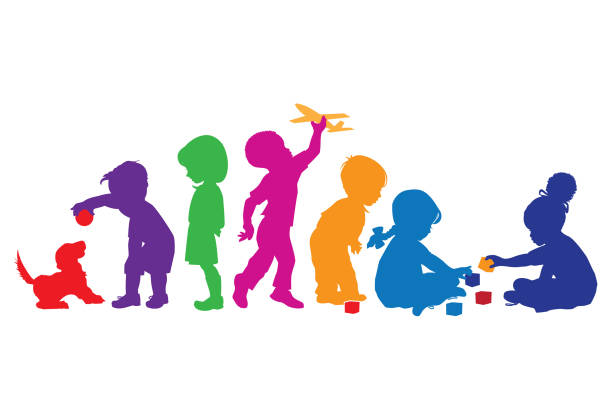Discover How Daycare North York Creates Safe and Engaging Learning Environments
Wiki Article
The Role of Day Care in Fostering Social Abilities and Very Early Understanding
Day care acts as a significant environment for children, promoting vital social communications that promote early knowing. In this structured setup, youngsters engage with peers and caregivers, creating important communication and participation abilities. As they browse play and various tasks, they discover to fix disputes and construct emotional knowledge. Understanding the nuances of these interactions exposes the profound influence day care carries a kid's development, shaping their future partnerships and academic preparedness. What certain abilities do children obtain in this setting?The Relevance of Social Communication in Daycare
While several parents identify the significance of early childhood education and learning, the duty of social communication in daycare is frequently taken too lightly. Childcare setups provide kids with very useful possibilities to engage with peers, cultivating crucial social abilities. During these developmental years, youngsters learn to browse various social characteristics, such as sharing, participation, and problem resolution. Communicating with diverse age teams and characters enhances their capacity to adjust to various atmospheres and establish empathy in the direction of others.
Structure Communication Abilities With Play
Play functions as an effective tool for children to build critical communication skills in childcare setups. With numerous play activities, children engage in discussions, share their thoughts, and learn to pay attention to others. Parlor games, for circumstances, urge them to use language in various contexts, promoting vocabulary expansion and understanding of social cues.
Narration throughout playtime allows children to share feelings and ideas, assisting them create narrative skills and self-confidence in their verbal expressions. On the whole, play not just serves as a satisfying activity but likewise as an important platform for creating the interaction skills essential for effective social communications in later life.
Encouraging Teamwork and Teamwork
Teamwork and teamwork are vital abilities that kids can grow in childcare atmospheres. Through numerous group tasks, such as building tasks or collective video games, children learn to share obligations and job towards usual objectives. These interactions promote an understanding of the importance of listening to others, discussing roles, and endangering when required.In day care settings, caretakers often produce chances for youngsters to participate in teamwork by encouraging them to participate in team tasks. This not just assists kids create social bonds however likewise cultivates a sense of belonging and neighborhood.
As they browse these cooperative experiences, children obtain useful insights into the dynamics of collaborating with peers. They find out to value varied viewpoints and acknowledge that each member contributes distinctively to the group initiative. Inevitably, these early lessons together and team effort prepared for much healthier partnerships and reliable cooperation in future social and scholastic settings.
Structured Knowing Activities and Cognitive Advancement
Structured knowing activities play an essential duty in promoting cognitive growth in young youngsters (Child Care Near Me). These tasks, which consist of puzzles, narration, and hands-on experiments, boost essential reasoning and analytical abilities. In a childcare setting, structured discovering motivates kids to engage with their peers, enhancing their capacity to procedure info and recognize different principles
With guided play and interactive jobs, kids create foundational abilities such as numeracy and proficiency. For example, activities centered around numbers can assist kids comprehend mathematical principles, while storytelling boosts language procurement and understanding. Furthermore, structured understanding permits educators to assess developing progress and dressmaker tasks to individual discovering needs.

Including a varied variety of organized tasks not only promotes cognitive development but additionally prepares kids for future scholastic success. By supplying a well balanced environment that promotes exploration and questions, childcare programs play an important duty in forming the cognitive capacities of young learners.
Promoting Psychological Knowledge and Self-confidence
Emotional knowledge and self-confidence are necessary parts of a youngster's growth, complementing the cognitive abilities promoted with structured knowing activities. In daycare settings, children are offered with opportunities to reveal their feelings and involve in social communications, which are crucial for developing emotional awareness. Via led play and group tasks, children learn to identify their sensations, acknowledge those of others, and create compassion.Communication with caregivers and peers aids to cultivate website here self-worth and resilience. Favorable reinforcement and motivation from adults empower youngsters to take dangers and face challenges, fostering a sense of achievement. As they browse social dynamics, kids develop confidence in their capacities to communicate, work together, and resolve disputes - Child Care Center. This caring atmosphere enables the gradual advancement of emotional intelligence, look at here which is crucial for future social relationships and general well-being. As an outcome, day care plays a significant duty in cultivating both psychological intelligence and confidence in kids
Regularly Asked Inquiries
How Can Moms And Dads Select the Right Day Care for Their Child?
Parents ought to think about aspects such as location, personnel qualifications, security requirements, educational program, and evaluates from various other moms and dads when selecting the ideal day care for their youngster, guaranteeing it lines up with their child's developmental requirements and family members values.
What Age Is Ideal for Starting Day Care?

How Does Day care Influence Children's Habits in your home?
Childcare typically positively affects kids's habits at home by boosting social skills, promoting freedom, and encouraging psychological regulation (Childcare North York). Consequently, children might show improved interaction and participation, causing even more harmonious family members dynamicsAre There Any Kind Of Drawbacks to Day Care Presence?
Yes, there are downsides to day care attendance, including possible splitting up anxiousness, direct exposure to ailments, and inconsistent caregiving. These factors can affect a youngster's emotional health and adjustment at home, influencing overall family characteristics.Just How Can Parents Assistance Social Abilities Found Out at Daycare?
Moms and dads can sustain social skills found out at day care by helping with playdates, urging participating activities, modeling positive interactions, discussing sensations, and reinforcing sharing and communication in the house, therefore click to investigate boosting their kid's social development and self-confidence.Day care offers as a substantial environment for young children, helping with vital social interactions that promote very early understanding. Day care setups offer kids with important opportunities to engage with peers, cultivating crucial social skills. Play offers as a powerful medium for youngsters to develop critical communication abilities in day care setups. In childcare settings, kids are offered with possibilities to share their emotions and engage in social communications, which are essential for developing psychological recognition. Daycare commonly favorably affects children's behavior at home by improving social skills, promoting self-reliance, and encouraging emotional guideline.
Report this wiki page